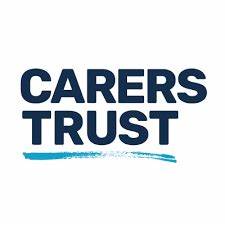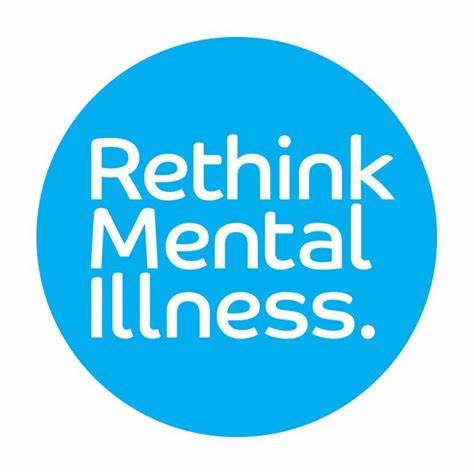Just select the areas you'd like support in by clicking the

🧩 Understanding Your Role as a Carer
🌈 Being a family carer in Coventry means looking after someone who is unable to cope on their own due to illness, disability, mental health needs, or old age. Family carers are not paid for what they do, but their support can make a big difference to the person they care for and the wider community.
👨👩👧 Types of Unpaid Family Carers
- There are many types of carers, such as:
- Adult carers: Supporting an adult, such as a parent, spouse, or friend.
- Young carers: Under 18 and caring for a family member.
- Parent carers: A parent caring for a child with special needs or a disability.
- Carers for someone with mental health needs.
- Carers for someone living with dementia or learning disabilities.
🏆 Every caring role is unique, but typical tasks carers help with include:
- Personal care (washing, dressing, eating)
- Giving medicines
- Cleaning or tidying up
- Shopping
- Supporting with appointments and transport
- Emotional support and companionship
- Handling paperwork, finances, or benefits
🔗 Support Available for Coventry Carers
🪁 Carers Trust Heart of England is the main local carer support organisation, offering tailored help for carers in Coventry. They can:
- Offer advice on your caring role
- Help you find breaks from caring (respite care)
- Provide practical support and information
- Link you with other carers, so you feel less alone
- Support with mental wellbeing
- Help with benefits and rights
- Give information about support available for the person you care for
Contact Carers Trust Heart of England at https://www.carerstrusthofe.org.uk/ or call 📞 02476 632972.
🏡 Coventry City Council also shares helpful local information for carers, including assessments and services available. Read more at https://www.coventry.gov.uk/carers-support.
🚩 What Support Can You Expect?
🌻 As a carer in Coventry, you can expect support in these areas:
- Carer’s Assessment: This is your chance to talk about your own needs as a carer. It can help identify support, training, and breaks you might need. The assessment is free.
- Information and Advice: Help with understanding your rights, guiding you through health and social care, and finding out about benefits.
- Practical Help: Support during emergencies, help at home, and equipment or adaptations for the person you care for.
- Respite and Breaks: Opportunities to take some time for yourself while the person you care for is looked after safely.
- Peer Support: Connect with other carers through local groups, events, or online, which can help you share experiences and cope better.
🍀 Tips for Family Carers
🏞 It’s important to look after yourself so you can keep supporting the person you care for:
- Don’t be afraid to ask for help. Support is available locally.
- Notice how you’re feeling; speak up if you’re running out of energy or feeling overwhelmed.
- Make time for your own hobbies and interests.
- Stay connected to friends, family, and other carers.
- Learn more about the specific needs of the person you care for so you feel confident.
🗝 Where Can You Find Help Locally?
🌟 Your main carer support services in Coventry are:
- Carers Trust Heart of England: Advice, practical help, events, and more (Website, 📞 02476 632972).
- Coventry City Council: Advice, carer assessments, and local guidance (Website).
You can utilise these services whenever you need them. They prioritise supporting unpaid carers and make it as easy as possible to get help.
🪶 More Information
📚 To learn more, see the links above and reach out directly. Whether you are new to caring or have been looking after the person you care for for years, support is always available and you are never alone in your caring role.
If you need someone to talk to, guidance about benefits, or advice about practical caring tasks, contact the local services—they will listen, guide, and help you prioritise your well-being as well as the needs of the person you care for.
Carers' Trust
The Carers' Trust is the largest provider of comprehensive carers support services in the UK.Age UK
We aim to provide life-enhancing services and vital support to people in later life. We and our local partners deliver a range of services across the UK.Our local Age UKs run a variety of different services. Not all services take place in every area, but all local Age UKs will be able to help you find what you're looking for.
Bridgit
Bridgit Care understand that being an unpaid carer is one of the most important jobs out there. But it can sometimes feel lonely and like you're unsupported. Which is why we're always here to listen and help. We believe technology should be designed with and for carers and the ones they support.Email: contact@bridgit.care
Carers UK
Carers UK give expert advice, information and support to carers in order to make their life better.Carers UK are available to make sure that no matter how complicated your query or your experience, you don't have to care alone.
They have an expert telephone advice and support service for if you want to talk about caring. And if you're looking for answers, they have online information and support.
Carers UK continually campaign for carers rights, alongside having online support groups and volunteering opportunities.
Veterans Gateway
Veterans’ Gateway – information, advice and support for veterans and their families Here for you 24/7, we are the first point of contact for veterans and their loved ones. We can directly refer you to our verified, expert partners including Combat Stress, SSAFA, Poppy Scotland and more.Carers UK Animated Video Guides
Carers UK animation series covers a wide variety of topics to help you understand what support and benefits are available to help you look after someone as well as yourself.Click below to play animation
Carers Allowance Universal Credit Personal Independent Payments Disability Living Allowance Carers Assesments Attendance AllowanceSelect from below to receive advice.
Exploring Care Technology and Funding Options in Coventry
📱 Understanding Care Technology
Care technology encompasses various devices and systems designed to support the health, safety, and wellbeing of the person you care for. This can include personal alarms, medication dispensers, GPS trackers, and telecare systems that provide remote monitoring of health conditions.
🌟 Is Care Technology Expensive?
The cost of care technology can vary widely depending on the type of technology and features you need. Basic items like medication reminders might be affordable, but more advanced systems like comprehensive telecare solutions could be more costly. It's important to assess what specific needs the person you care for has and what technology is best suited to meet those needs.
💷 Funding and Financial Support
-
Local Authority Support
Coventry City Council can be a valuable resource when looking for financial support to obtain care technology. They can assess the needs of the person you care for to determine if they qualify for any funding to help cover the costs of necessary technology. You can find more information on their support services here. -
NHS Funding
In some cases, if the technology is recommended as part of a health care plan, costs may be covered by the NHS. It's worth discussing this with your GP or the healthcare provider of the person you care for to explore if this is an option. -
Charities and Grants
There are various charities and organisations that offer grants specifically for care technology. It's worth doing some research to see if there are any that you can apply to. The Carers Trust Heart of England might also be able to guide you to specific charities or funds. You can visit their website here or call them at 02476 632972 for more personalised advice.
🔍 Choosing the Right Technology
Choosing the right technology is crucial. Consider the following steps:
- Assess Needs: Clearly identify what needs the technology should address.
- Research Options: Look into different technologies available that meet these needs.
- Consult Healthcare Providers: Talk to professionals involved in the care of the person you are supporting for recommendations.
- Check Reviews: Look at reviews from other carers who have used the technology to gauge effectiveness and reliability.
🤝 Support and Training
Once you have the technology, making sure you and the person you care for know how to use it is just as important as having it. Check if the supplier offers training sessions. Additionally, local organisations like the Carers Trust Heart of England may provide training or advice on utilising care technology effectively.
🔄 Maintenance and Updates
Keep in mind that technology can require regular updates or maintenance. Check what support the product supplier offers in terms of service and maintenance contracts to ensure the technology remains functional and up-to-date.
🔗 Useful Links:
In summary, while care technology can be an investment, there are various funding options and supports available in Coventry that can make it more accessible. Assessing needs carefully and choosing the right technology will ensure that it is a beneficial addition to the care routine for the person you are supporting.
Exploring Care Technology Options in Coventry
🖥️ Understanding Care Technology
Care technology, often referred to as "assistive technology," includes a range of devices and systems designed to enhance the quality of life and independence of those needing support. It can range from simple aids like pill dispensers to more complex systems like fall detectors or GPS trackers. These technologies are designed to help you in caring for the person you look after, ensuring their safety and your peace of mind.
🔍 Finding the Right Technology
-
Assess Needs: Start by assessing the specific needs of the person you care for. Consider which daily tasks they need help with and what challenges they face. This will help you identify the type of technology that could be most beneficial.
-
Consult Professionals: It's a good idea to consult with healthcare professionals or a care needs assessor. They can provide recommendations based on the person's health and environmental conditions.
🌐 Local Resources in Coventry
-
Carers Trust Heart of England: They offer advice and support on how technology can aid in caring. They might also have information on local suppliers or training for specific devices. Visit their website here or call them at 02476 632972.
-
Coventry City Council: Their carer support page provides insights and links to resources that may include information on available technology aids. Check their support page here.
🛒 Purchasing and Funding Options
-
Local Retailers and Suppliers: Some local shops and pharmacies may offer basic aids, and they can usually order more specific devices upon request. It's worthwhile to ask for a demonstration to understand how the technology works.
-
Financial Support: There may be financial aid available to help with the cost of care technology. The person you care for might be eligible for benefits like the Disability Living Allowance, which could be used to cover some of these costs. Consult with local services for guidance on applying for these benefits.
📲 Online Resources
-
AT Dementia: Provides comprehensive information on assistive technology specifically designed for dementia care. This can be a valuable resource if the person you care for has dementia. Visit their website at AT Dementia.
-
Living Made Easy: An extensive site offering advice and information on a wide range of products and technology for elderly care. Check out their offerings here.
📞 Stay Informed and Connected
-
Workshops and Seminars: Keep an eye out for any local workshops or seminars about care technology. These can be excellent opportunities to learn more and even try out new devices.
-
Support Groups: Joining local carer support groups can provide additional insights and personal experiences from other carers who might be using technology in their caring roles.
👩💻 Conclusion
Utilising care technology can significantly ease the challenges associated with looking after someone. In Coventry, you have access to resources that can guide you through choosing and using these technologies effectively. Remember, you're not alone in this journey; local organisations, healthcare providers, and the community of carers are valuable supports to help you integrate technology into your caring responsibilities effectively.
📱 Understanding Home and Health Monitors for Carers in Coventry
Utilising technology effectively can make a significant difference in your role as a carer. Home and health monitors are tools that help you ensure the safety and well-being of the person you care for, even when you can't be right by their side. Here’s how you can make the most of these technologies in Coventry.
🔍 What are Home and Health Monitors?
Home monitors typically refer to devices that track movement or activity in the home. These include motion sensors, video cameras, and fall detectors. Health monitors, on the other hand, are devices that keep an eye on the physical health of the person you care for. These can range from blood pressure monitors to wearable devices that track heart rate and sleep patterns.
🏠 Choosing the Right Home Monitors
When selecting home monitoring technology, consider what aspects of the person's daily life need monitoring. For example, if the person has a risk of falling, investing in a fall detection system might be a priority.
-
Video Monitoring: Install cameras in common areas to monitor activity without intruding on privacy. Ensure that the person you care for is comfortable with this setup.
-
Motion Sensors: These can be placed around the home to alert you if the person you care for has left a designated safe area, especially useful for individuals prone to wandering due to dementia.
💓 Selecting Health Monitors
Health monitoring devices should be chosen based on the specific health needs of the person you care for:
-
Wearable Health Devices: Devices like Fitbits or Apple Watches can monitor heart rate, activity levels, and even sleep patterns.
-
Medical Alert Systems: Consider a wearable pendant or bracelet that the person can press in case of an emergency to alert you or emergency services.
🌐 Where to Find These Technologies in Coventry
-
Local Electronics Stores: Check out stores in Coventry like Currys PC World for a range of basic home and health monitoring devices.
-
Online Retailers: Websites like Amazon and Argos offer a wide variety of monitoring technologies with customer reviews which can be very helpful.
🛠 Installation and Setup
Many local businesses in Coventry offer installation services for home technology. If you prefer a professional setup, especially for comprehensive systems involving multiple devices, this might be a worthwhile investment.
💡 Tips for Effective Utilisation
-
Privacy Matters: Always respect the privacy of the person you care for. Have open conversations about the use of monitors and ensure they are comfortable with their home setup.
-
Routine Checks: Regularly check that all devices are working correctly and that batteries are charged or replaced as needed.
-
Emergency Plans: Ensure that both you and the person you care for know how to use emergency features on health monitors.
📞 Local Support in Coventry
For more personalised advice or assistance with setting up home and health monitoring systems, you might want to contact Carers Trust Heart of England. They can offer guidance and potentially help in sourcing and installing the right technology.
- Website: Carers Trust Heart of England
- Phone: 02476 632972
🔗 Useful Links
- Coventry City Council Carer Support: Discover additional resources and support for carers by visiting Coventry City Council.
Utilising home and health monitors can significantly ease the challenges associated with caring. By staying informed and making thoughtful choices about the technology you use, you can enhance both your own peace of mind and the well-being of the person you care for.
Introduction to Using Technology to Assist in Caring
🌐 Caring for someone can be physically and emotionally demanding, but thankfully, technology offers numerous tools and resources to make your responsibilities as a carer a bit easier. Here are some practical ways to integrate technology into your daily routine to support you in caring for the person you care for in Coventry.
Health Monitoring Apps
📱 Health monitoring apps can be incredibly helpful to keep track of the person you care for's medical conditions, medication schedules, and doctor's appointments. Apps like MyTherapy and Medisafe not only remind you when it's time to administer medication but also track health measurements and symptoms, which can be useful for medical appointments.
Emergency Alert Systems
🚨 Consider setting up an emergency alert system in the home. Systems like Lifeline24 or Telecare are designed to alert carers or emergency services at the touch of a button if the person you care for needs immediate assistance. This is particularly useful if you have to step out of the house or are in another part of the home.
Online Shopping and Prescription Services
🛒 To save time, utilise online services for grocery shopping and prescriptions. Most major supermarkets deliver in Coventry, and services like Pharmacy2U can manage prescription orders online and deliver medications directly to your door. This not only saves time but also reduces the stress of having to go out and queue, especially if you are managing a tight caregiving schedule.
Communication Tools
📞 Regular communication is vital, especially if you're not living with the person you care for. Tools like Skype, Zoom, or even simple messaging apps can help you stay in touch and provide reassurance both to you and the person you care for. Also, consider installing a video monitor system like Nest or Ring, which can help you keep an eye on things from your smartphone.
Local Support with Technology
💻 Carers Trust Heart of England offers support in understanding and setting up technology that can assist in your caring duties. They can provide advice on gadgets and apps that are particularly useful for carers in Coventry. You can reach them on their website at Carers Trust Heart of England or by phone at 02476 632972.
Learning and Support Workshops
🎓 Keep an eye out for workshops and training sessions on technology use in caring. These are often held by local carer organisations and can provide hands-on help and advice on maximising the benefits of technology in your caring role. Coventry City Council’s carer support page Coventry City Council Carer Support is a helpful resource to find upcoming events.
Security and Safety
🔒 When setting up any technological device, especially those connected to the internet, make sure to prioritise security. Use strong, unique passwords for each device and consider a service that monitors online security and alerts you to any potential breaches.
Technology can greatly ease the strain of caring responsibilities by improving communication, ensuring safety, and managing health care tasks. By integrating these tools into your daily routine, you can enhance your ability to care effectively and also find more time for self-care. Remember, local resources like Carers Trust Heart of England are there to support you in making the most of these technological advantages.
Understanding Traditional Push Buttons and Home Alarms 🏠🔔
When you are caring for someone, ensuring their safety and your ability to respond quickly to their needs is crucial. Traditional push buttons and home alarms can be vital tools in achieving this. Here’s a guide to help you understand and manage these technologies effectively.
1. Choosing the Right System 🛒
Before selecting a system, consider what you need it to do. Do you need a simple alarm that the person you care for can press in an emergency, or something more sophisticated that includes fall detection or activity monitoring?
For personalised advice and options available in Coventry, you can contact Carers Trust Heart of England. They can provide recommendations based on your specific situation.
2. Installation and Setup 🔧
Most basic push button systems are easy to install. They typically come with a main alarm unit and a wireless button that can be carried around by the person you care for. Ensure that the button is always within easy reach of the person you care for, perhaps by attaching it to a lanyard or placing it in several strategic locations around the home.
If you are not comfortable setting up the system yourself, you can seek help from local services. The Carers Trust Heart of England might have contacts for local technicians who can assist with installation.
3. Regular Testing and Maintenance 🛠️
To ensure that the alarm system works when needed, test it regularly. This involves pressing the test button on the alarm and ensuring that it triggers the response you expect. Check batteries periodically and replace them as needed. Also, make sure that all components of the system are clean and free from dust.
4. Emergency Response Plan 🚨
Having an alarm system is only part of the solution. You also need a solid plan for what happens after the alarm is triggered. Discuss and document who should be contacted in an emergency—whether it’s you, another family member, a neighbour, or emergency services. Ensure everyone involved knows their role and how to perform it effectively.
5. Utilising Additional Features 🌟
Some modern systems offer additional features such as fall detection, GPS tracking, or the ability to set reminders for medication. While these features may cost more, they can provide significant benefits. Consider what might enhance safety and peace of mind for both you and the person you care for.
6. Training and Familiarisation 📘
Once your system is set up, spend some time training the person you care for on how to use it. Regularly revisit this training to ensure they remain comfortable and confident in using the alarm.
7. Local Support and Resources 📞
For ongoing support and resources, connect with the Carers Trust Heart of England. They can offer guidance and may also know of local workshops or training sessions on using home technology to support caring.
Their contact details are:
- Website: Carers Trust Heart of England
- Phone: 02476 632972
Additionally, Coventry City Council provides a comprehensive overview of carer support which might include useful information about technological aids for carers. Check their guide at Coventry City Council - Carer Support.
By equipping yourself with the right technology and knowledge, you can enhance the safety and comfort of the person you care for. Remember, you’re not alone in this journey—local resources and communities are available to support you.
Introduction to Smart Speakers and Smart Screens
🔊 Smart speakers and smart screens can greatly enhance the quality of life for you and the person you care for by providing entertainment, information, and even assistance with daily tasks. Here’s how to get started and utilise these devices effectively in your caring role.
Choosing the Right Device
📱 When selecting a smart speaker or smart screen, consider what you need most from the device:
- Voice commands: Devices like Amazon Echo and Google Home allow users to control them through voice, which can be very helpful if the person you care for has mobility issues.
- Screen features: If visual interaction is important, choose a device like the Amazon Echo Show or Google Nest Hub, which have screens for video calls, displaying photos, or even watching videos.
Setting Up the Device
🔧 Setting up your smart device is generally straightforward:
- Placement: Place the device in a central location where the person you care for spends a lot of time. It should be easily accessible.
- Power: Ensure the device is plugged into a power source and turned on.
- Connectivity: Connect the device to your home WiFi. Follow the instructions provided in the device’s manual or app to complete the setup.
- Accessibility settings: Adjust the settings to suit the needs of the person you care for. This might include increasing text size, changing contrast, or setting up voice recognition.
How to Use the Device
👨💻 Here are a few ways you can use smart speakers and smart screens:
- Daily reminders: Set up medication reminders or reminders for appointments and meal times.
- Entertainment: Play music, audiobooks, or radio stations. This can be very soothing and provide a pleasant atmosphere.
- Information: Ask for news updates, weather forecasts, or even general knowledge questions.
- Communication: Use video calls to keep in touch with family and friends, which can be especially uplifting for the person you care for.
Local Support in Coventry
🌍 For more personalised support and advice on utilizing technology in your caring role, you can contact Carers Trust Heart of England. They might be able to provide training or hands-on assistance with setting up and using new technologies. Visit their website at Carers Trust Heart of England or call them at 02476 632972.
Further Learning and Troubleshooting
🛠️ If you encounter issues or want to learn more about how to make the most out of your smart device, consider:
- Online tutorials: Websites like YouTube have numerous tutorials that can help you master your device.
- Manufacturer support: Check the website of your device’s manufacturer for FAQs and troubleshooting guides.
Privacy Considerations
🔒 While these devices offer numerous benefits, it’s important to be aware of privacy settings. Regularly check the privacy settings and keep the device’s software up to date to protect against unauthorized access.
Conclusion
🌟 Smart speakers and smart screens can be a wonderful addition to your home, providing both practical assistance and a source of enjoyment. With the right setup and a little practice, they can significantly enhance the support you provide in your caring role. Always remember that local support is available through the Carers Trust Heart of England, and they are there to help you navigate the complexities of technology.
Introduction to Wearables for Support
👨💻 Wearable technology can be a fantastic support for carers in Coventry, offering both peace of mind and practical assistance in caring for someone at home or while being away. These devices range from health monitoring gadgets to GPS trackers, and can significantly ease the responsibilities of caring.
Understanding Different Types of Wearables
🚶 GPS Trackers: These devices are particularly useful if the person you care for has a tendency to wander or get lost. GPS trackers can be worn as watches or pendants and allow you to monitor their location from your smartphone or computer.
🌡️ Health Monitors: Wearables like smartwatches can track vital signs such as heart rate, sleep patterns, and even detect falls. This information can be crucial for monitoring the health and well-being of the person you care for.
🔊 Emergency Alert Systems: Some wearables come equipped with emergency buttons that the person you care for can press to alert you or emergency services if they need immediate help.
Choosing the Right Wearable
🛒 When selecting a wearable device, consider the specific needs of the person you care for. For example, if they have dementia, a GPS tracker might be essential. If they have chronic health issues, a health monitor could be more appropriate. It's also important to choose devices that are comfortable and easy for the person you care for to use.
You can find a range of wearable devices at local electronics stores in Coventry or online. Ensure to check the compatibility of the device with your smartphone or computer.
Setting Up and Using Wearables
💻 Most wearable devices require some setup. This usually involves charging the device, installing an app on your smartphone or computer, and syncing the device with the app. If you’re not confident setting up technology on your own, you might want to ask a friend or family member for help, or contact the Carers Trust Heart of England for possible tech support services.
Local Resources and Support
📞 For more personalised advice and support on using technology to aid in caring, you can contact the Carers Trust Heart of England. They can offer guidance and may have workshops or sessions on technology use in caring. Check their website at Carers Trust Heart of England or call them at 02476 632972.
Additionally, Coventry City Council provides an overview of carer support, which can include resources for technology use in caring. Visit their page on carer support at Coventry City Council Carer Support to learn more.
Privacy and Security Considerations
🔒 When utilising wearables, it's crucial to consider privacy and security. Ensure that any device you choose has strong security measures in place to protect the personal and location data of the person you care for. Regularly update the device software to protect against security vulnerabilities.
Conclusion
🌟 Wearable technology can significantly enhance your ability to care effectively and safely. By choosing the right device, setting it up properly, and utilising local resources for support, you can make a substantial difference in your caring role. Always remember that you’re not alone in this journey, and there are numerous resources in Coventry to support you.
UK Safer Internet Centre
A place where you can find online safety tips, advice and resources to help children and young people stay safe online.Orcha Health Apps
All the health apps you need in one place covering a range of health conditions.Healthcare Pro
Healthcare Pro specializes in household aids and telephones equipped with health alarms. These aids are designed to provide caregivers with tools that ensure the safety and prompt assistance for individuals requiring care, enhancing their sense of security.WeCair
WeCair is dedicated to providing support and resources for family caregivers. Their platform likely offers information, guidance, and products that aid caregivers in managing their responsibilities effectively while prioritizing their own well-being.Medequip Connect
Medequip Connect offers a range of products to aid caregivers in providing care for their family members. Their online shop provides various caregiving essentials, mobility aids, and daily living aids to assist in enhancing the quality of life and comfort of individuals needing care.Tech Silver
TechSilver focuses on delivering technology-based solutions to caregivers and care recipients. Their offerings likely include products that utilize technology to support various aspects of caregiving, such as communication, safety, and well-being.Taking Care
A range of alarms for the elderly and vulnerable that are designed to offer flexible and affordable peace of mind and can assist with independent living.Alert-iT
Alert-iT specializes in assistive technology products that monitor and provide alerts for specific care needs. Caregivers can likely find products designed to prevent falls, manage seizures, and ensure timely assistance for their loved ones.Pivotell
Pivotell offers products that aid caregivers in managing medication schedules effectively. Their solutions likely include automated medication dispensers and reminders, helping caregivers ensure their loved ones receive their medications as prescribed.Possum
Possum Ltd specializes in assistive technology solutions that empower caregivers to enhance the independence and comfort of those they care for. Their range of products likely includes devices that facilitate communication, environmental control, and accessibility.Medpage
Medpage Ltd offers a selection of specialized healthcare products and assistive devices that cater to the needs of caregivers and their loved ones. These products focus on improving patient safety, monitoring health conditions, and enhancing overall well-being.Select from below to receive advice.
Samaritans
Whatever you're going through, a Samaritan will face it with you. We're here 24 hours a day, 365 days a year.If you are having a difficult time or are worried about someone else we can help you so please feel free to get in touch.
Alzheimers Society
Alzheimer's Society is the UK's leading dementia charity who support people living with dementia.Dementia is the UK's biggest killer. Someone develops it every three minutes and there's currently no cure. Alzheimer's Society are campaigning for change and funding research to find a cure.
They provide support, information and advice to anyone who may need it.
Dementia UK
Provides support, information and advice about living with dementia. It offers a helpline is for anyone with a question or concern about dementia.Mind
When you're living with a mental health problem, having access to the right information is vital.Alternatively you may not be the person living with the mental health problem but wish to support someone who is.
Mind can help with this being a charity that supports and works hard to improve conditions for mental health in the UK.
We believe no one should have to face a mental health problem alone. We'll listen, give you support and advice, and fight your corner.
They offer a number of services such as advice and guidance, you can find by clicking the visit button below.
Next Steps
This website helps you to find the right support while waiting a memory assessment appointment and diagnosis.Together In Dementia Everyday (TIDE)
This is a UK wide involvement network of carers, former carers and health and care professionals who are working together to build a better future for carers of people living with dementia.Select from below to receive advice.
Understanding Loneliness in Carers
🌐 Loneliness is a common feeling among carers due to the demanding nature of their role. As a carer, you might often find yourself isolated as you spend a lot of time caring for the person you care for, which can limit your opportunities to engage in social activities and make new friends. Recognising the signs of loneliness, such as feelings of sadness, emptiness, or emotional disconnect, is the first step towards addressing it.
Strategies to Combat Loneliness
🌻 Stay Connected: Make an effort to keep in touch with family and friends. Regular phone calls, messages, or video chats can help reduce feelings of isolation.
📚 Join Local Clubs or Groups: Engaging in local clubs or interest groups can be a great way to meet new people with similar interests.
Local Clubs and Services in Coventry
📅 Carers Trust Heart of England Groups: Joining support groups through the Carers Trust Heart of England can connect you with other carers who understand the challenges you're facing. This can be a great way to make new friends who are in similar situations. For more information, visit Carers Trust Heart of England or call them at 02476 632972.
🎨 Coventry Arts and Crafts Meetups: Participating in local arts and crafts classes can help you meet people who share your creative interests. These activities are not only relaxing but also offer a chance to socialize.
🌿 Gardening Clubs: If you have a green thumb, or even if you're just starting out, local gardening clubs provide a serene environment to meet others who enjoy gardening. It’s a healthy way to spend time outdoors and engage with your community.
Befriending Services
🤝 Age UK Coventry Befriending Service: This service is designed to help reduce loneliness by matching you with a volunteer who shares similar interests. It’s a wonderful way to make a new friend and enjoy regular conversations. Check their services here.
Utilising Technology
💻 Online Forums and Social Media: There are many online platforms where you can connect with others. Websites like Meetup.com allow you to find local groups or events based on your interests.
Maintaining Your Wellbeing
🧘 Regular Exercise: Physical activity is not only good for your health but also boosts your mood and can be a social activity if you join classes or groups.
🍽️ Balanced Diet: Eating a well-balanced diet helps in maintaining your energy levels and overall health, which can positively affect your mood and resilience against loneliness.
Remember, You're Not Alone
🆘 Seek Professional Help: If loneliness is overwhelming, consider talking to a mental health professional. They can provide strategies tailored to your situation to help you cope more effectively.
Conclusion:
Loneliness can be challenging, especially as a carer, but there are many ways to connect with others and improve your social life. By engaging in local clubs, utilising befriending services, and staying active in your community, you can build meaningful relationships and reduce feelings of isolation. Remember, taking care of your own wellbeing is just as important as caring for someone else.
Rethink Mental Illness
Works to help everyone affected by severe mental illness recover a better quality of life. Has a good range of factsheets on all issues related to mental illness.Do-It
Do-it is the UK's national volunteering database, which lists volunteering opportunities from thousands of charities and social action groups in the UK, from the largest household names through to small informal groups.These opportunities have come together because groups and organisations want to change something in their local area.
You can find the right volunteering opportunity for you using Do-It.
The Silver Line
The Silver Line operates the only confidential, free helpline for older people across the UK that's open 24 hours a day, seven days a week, 365 days of the year.They offer telephone friendship to match volunteers with older people based on their interests, provide information and support, facilitate group calls, and help to connect people with local services in their area.
The Silver Line Helpline – 0800 4 70 80 90
Samaritans
Whatever you're going through, a Samaritan will face it with you. We're here 24 hours a day, 365 days a year.If you are having a difficult time or are worried about someone else we can help you so please feel free to get in touch.
Re-engage
Re-engage is a UK charity addressing loneliness and social isolation amongst the elderly.They facilitate social connections for older people who live alone or in sheltered housing across the UK - through organising tea parties, call companion services and other activity groups, all free of charge.
Mind
When you're living with a mental health problem, having access to the right information is vital.Alternatively you may not be the person living with the mental health problem but wish to support someone who is.
Mind can help with this being a charity that supports and works hard to improve conditions for mental health in the UK.
We believe no one should have to face a mental health problem alone. We'll listen, give you support and advice, and fight your corner.
They offer a number of services such as advice and guidance, you can find by clicking the visit button below.
Select from below to receive advice.
Age UK
The Age UK page provides information and advice on respite care for carers, explaining how it works, different types (home care, day centers, residential care), how to arrange it, and its impact on benefits. The page also offers additional resources, including a helpline, guides, and links to local Age UK services.Carers Trust
The Carers Trust page provides information on respite care options, including breaks, sitting services, holidays, and paid help, along with guidance on arranging and paying for these services.Carers UK
The Carers UK page emphasizes the importance of taking breaks for carers, offering advice on different types of breaks, how to arrange them, and managing the associated costs and benefits.Select from below to receive advice.
UK Safer Internet Centre
A place where you can find online safety tips, advice and resources to help children and young people stay safe online.Men's Sheds
Men's Sheds (or Sheds) are similar to garden sheds – a place to pursue practical interests at leisure, to practice skills and enjoy making and mending. The difference is that garden sheds and their activities are often solitary in nature while Men's Sheds are the opposite. They're about social connections and friendship building, sharing skills and knowledge, and of course a lot of laughter.Sheds are whatever the members (or Shedders as we call them) want them to be. Although labelled sheds, they often aren't sheds at all. They can be empty offices, portable cabin's, warehouses, garages, and in at least one case, a disused mortuary. Some Sheds are purpose built workshops, but they rarely start out that way. Many don't have premises at all in the beginning and instead form a group that meets regularly for the social connection, company and camaraderie until they can find somewhere to kit out with tools. Many Sheds get involved in community projects too – restoring village features, helping maintain parks and green spaces, and building things for schools, libraries and individuals in need.
Select from below to receive advice.
Samaritans
Whatever you're going through, a Samaritan will face it with you. We're here 24 hours a day, 365 days a year.If you are having a difficult time or are worried about someone else we can help you so please feel free to get in touch.
Mind
When you're living with a mental health problem, having access to the right information is vital.Alternatively you may not be the person living with the mental health problem but wish to support someone who is.
Mind can help with this being a charity that supports and works hard to improve conditions for mental health in the UK.
We believe no one should have to face a mental health problem alone. We'll listen, give you support and advice, and fight your corner.
They offer a number of services such as advice and guidance, you can find by clicking the visit button below.
British Association for Music Therapy (BAMT)
The British Association for Music Therapy (BAMT) is a charity committed to promoting and raising awareness of Music Therapy, advocating for equal access to Music Therapy for all, and providing information to the general public.Use their Find A Therapist tool to browse through professional members of BAMT and find a music therapist near you.
You have 4 notifications
Complete the following actions:
Care Circle
Once a month it's useful to reflect on how you're doing in different areas.
Just select an area of the care circle to update how you're getting on.
Ask Bridgit on WhatsApp 📱 is your go-to for caregiving advice, accessible anytime, anywhere. 🌍
Although it's a not a real person, Bridgit is equipped with the knowledge to support you. 📚
Simply add your phone number, message your queries - from caring for a relative to self-care tips, to get an instant answer. 💡
Available conversations

Are you looking for help in your caring role?
In a short conversation we'll learn a bit about you and the person you're caring for and then create a simple plan with:
📝 Insights into managing the specific condition of the person you're caring for.
🤝 Guidance on accessing and using these services effectively.
🌍 Links to online resources and communities for carers.

Need Help Making Your Home Safe?
Let's talk about how to make your home safer. We'll help you with:
🏠 Tips Just for You: We'll look at pictures of your house and tell you how to make it safer.
🔍 Find People Who Can Help: We'll share details of local services that might be able to help.
🌍 We'll show you where to find easy guides and tips on the internet to keep your home safe.

Looking for Wellbeing Support?
In our quick chat, we'll discuss your current engagement in physical activities, stress management practices, and hobbies that uplift you. We'll create a plan featuring:
🏃♂️ Suggestions for physical activities suited to your lifestyle.
🧘♀️ Tips on mindfulness and meditation, tailored to how often you can practice.
🎨 Ideas for hobbies and activities that can boost your mood and well-being.

Thinking About Getting Back to Work?
Let's have a quick chat to understand your current situation and your aspirations for returning to work. We'll create a concise plan that includes:
📈 Advice on balancing caregiving responsibilities with work.
🌐 Information on flexible working options and support for carers in the workplace.
📝 Tips on updating your CV and preparing for interviews.

Balancing Work and Care Responsibilities?
In our brief discussion, we'll explore how you can effectively manage both your professional life and caregiving duties. Your personalized plan will include:
⚖️ Strategies for achieving a work-care balance.
📅 Tips on time management and setting priorities.
🤝 Information on workplace rights and support for carers.

Navigating Financial Support & Benefits for Carers?
Join us for a brief chat to delve into the financial aspects of caregiving. We'll help you create a plan encompassing:
💰 Detailed information on benefits and financial support options specifically for carers.
📝 Step-by-step guidance on applying for these benefits.
🛠️ Tools and resources to help manage your finances effectively as a carer.

Considering Taking Time Out as a Carer?
In our short conversation, we'll discuss your need for a break from caregiving. We'll then formulate a plan that includes:
🏖️ Tips on how to plan for time off and respite care options.
🔄 Strategies for ensuring continuity of care during your absence.
🧘♀️ Suggestions for relaxation and rejuvenation activities.
Just select the areas you'd like support in by clicking the

Select from below to add conditions
Anxiety is a feeling of unease, such as worry or fear, that can be mild or severe.
Everyone has feelings of anxiety at some point in their life. For example, you may feel worried and anxious about sitting an exam, or having a medical test or job interview.
During times like these, feeling anxious can be perfectly normal.
But some people find it hard to control their worries. Their feelings of anxiety are more constant and can often affect their daily lives.
Anxiety is the main symptom of several conditions, including:
- panic disorder
- phobias, such as agoraphobia or claustrophobia
- post-traumatic stress disorder (PTSD)
- social anxiety disorder (social phobia)
The information in this section is about a specific condition called generalised anxiety disorder (GAD).
GAD is a long-term condition that causes you to feel anxious about a wide range of situations and issues, rather than 1 specific event.
People with GAD feel anxious most days and often struggle to remember the last time they felt relaxed.
As soon as 1 anxious thought is resolved, another may appear about a different issue.
Symptoms of generalised anxiety disorder (GAD)
GAD can cause both psychological (mental) and physical symptoms.
These vary from person to person, but can include:
- feeling restless or worried
- having trouble concentrating or sleeping
- dizziness or heart palpitations
When to get help for anxiety
Although feelings of anxiety at certain times are completely normal, see a GP if anxiety is affecting your daily life or causing you distress.
Your GP will ask about your symptoms and your worries, fears and emotions to find out if you could have GAD.
What causes generalised anxiety disorder (GAD)?
The exact cause of GAD is not fully understood, although it's likely that a combination of several factors plays a role.
Research has suggested that these may include:
- the genes you inherit from your parents
- having a history of stressful or traumatic experiences, such as domestic violence, child abuse or bullying
- having a painful long-term health condition, such as arthritis
- having a history of drug or alcohol misuse
But many people develop GAD for no apparent reason.
Who's affected
GAD is a common condition.
More women are affected than men, and the condition is more common in people from the ages of 35 to 55.
How generalised anxiety disorder (GAD) is treated
GAD can have a significant effect on your daily life, but several different treatments are available that can ease your symptoms.
These include:
- talking therapies – you can get talking therapies like cognitive behavioural therapy (CBT) on the NHS; you do not need a referral from a GP and you can refer yourself for talking therapies service in your area – read more about how to find an NHS talking therapies service
- medication – such as a type of antidepressant called selective serotonin reuptake inhibitors (SSRIs)
With treatment, many people are able to control their anxiety levels. But some treatments may need to be continued for a long time and there may be periods when your symptoms worsen.
Self-help for generalised anxiety disorder (GAD)
There are also many things you can do yourself to help reduce your anxiety, such as:
- going on a self-help course
- exercising regularly
- stopping smoking
- looking after your physical health

Frontotemporal dementia is an uncommon type of dementia that causes problems with behaviour and language.
Dementia is the name for problems with mental abilities caused by gradual changes and damage in the brain.
Frontotemporal dementia affects the front and sides of the brain (the frontal and temporal lobes).
Dementia mostly affects people over 65, but frontotemporal dementia tends to start at a younger age. Most cases are diagnosed in people aged 45-65, although it can also affect younger or older people.
Like other types of dementia, frontotemporal dementia tends to develop slowly and get gradually worse over several years.
Symptoms of frontotemporal dementia
Signs of frontotemporal dementia can include:
- personality and behaviour changes – acting inappropriately or impulsively, appearing selfish or unsympathetic, neglecting personal hygiene, overeating, or loss of motivation
- language problems – speaking slowly, struggling to make the right sounds when saying a word, getting words in the wrong order, or using words incorrectly
- problems with mental abilities – getting distracted easily, struggling with planning and organisation
- memory problems – these only tend to occur later on, unlike more common forms of dementia, such as Alzheimer's disease
There may also be physical problems, such as slow or stiff movements, loss of bladder or bowel control (usually not until later on), muscle weakness or difficulty swallowing.
These problems can make daily activities increasingly difficult, and the person may eventually be unable to look after themselves.
Read more about the symptoms of frontotemporal dementia.
Getting medical advice
See a GP if you think you have early symptoms of dementia. If you're worried about someone else, encourage them to make an appointment with a GP and perhaps suggest you go with them.
The GP can do some simple checks to try to find the cause of your symptoms, and they can refer you to a memory clinic or another specialist for further tests if needed.
Read more about getting a dementia diagnosis.
Tests for frontotemporal dementia
There's no single test for frontotemporal dementia.
The following may be needed to make a diagnosis:
- an assessment of symptoms – it's normally helpful to have somebody who knows the person well to give an account of their symptoms, especially as someone with frontotemporal dementia may not be aware of changes in their behaviour
- an assessment of mental abilities – this will usually involve a number of tasks and questions
- blood tests – to rule out conditions with similar symptoms
- brain scans – such as an MRI scan, a CT scan or a PET scan; these can detect signs of dementia and help identify which parts of the brain are most affected, or help rule out other problems with the brain
- lumbar puncture – to test the spinal fluid (fluid that surrounds and supports the brain and spine); this may be useful to rule out Alzheimer's disease as the cause of symptoms
Read more about the tests used to diagnose dementia.
Treatments for frontotemporal dementia
There's currently no cure for frontotemporal dementia or any treatment that will slow it down.
But there are treatments that can help control some of the symptoms, possibly for several years.
Treatments include:
- medicines – to control some of the behavioural problems
- therapies – such as physiotherapy, occupational therapy, and speech and language therapy for problems with movement, everyday tasks and communication
- dementia activities – such as memory cafes, which are drop-in sessions for people with memory problems and their carers to get support and advice
- support groups – who can offer tips on managing symptoms from dementia experts and people living with frontotemporal dementia, and their families
Read more about how frontotemporal dementia is treated.
Outlook for frontotemporal dementia
How quickly frontotemporal dementia gets worse varies from person to person and is very difficult to predict.
People with the condition can become socially isolated as the illness progresses. They may not want to spend time in the company of others, or may behave in rude or insulting ways.
Home-based help will usually be needed at some stage, and some people will eventually need care in a nursing home.
The average survival time after symptoms start is around 8 to 10 years. But this is highly variable and some people live much longer than this.
If you or a loved one has been diagnosed with dementia, remember you're not alone. The NHS and social services, as well as voluntary organisations and specialist support groups, can provide advice and support for you and your family.
Causes of frontotemporal dementia
Frontotemporal dementia is caused by clumps of abnormal protein forming inside brain cells. These are thought to damage the cells and stop them working properly.
The proteins mainly build up in the frontal and temporal lobes of the brain at the front and sides. These are important for controlling language, behaviour, and the ability to plan and organise.
It's not fully understood why this happens, but there's often a genetic link. People who get frontotemporal dementia may have relatives who were also affected by the condition.
If you have a family history of frontotemporal dementia, you may want to consider talking to your doctor about being referred to a geneticist and possibly having a genetic test to see if you're at risk.
There's a lot of research being done to try to improve understanding of the causes of frontotemporal dementia so treatments can be discovered.
If you're interested in helping with research, you can speak to a doctor or register your interest on the Join Dementia Research website.
Other names for frontotemporal dementia
Doctors sometimes use different names to describe frontotemporal dementia. These include:
- FTD
- Pick's disease
- frontal dementia
- frontotemporal lobar degeneration
- behavioural variant frontotemporal dementia
- primary progressive aphasia
- semantic dementia
- progressive non-fluent aphasia
More information
Living with dementia
- Living well with dementia
- Staying independent with dementia
- Dementia activities
- Looking after someone with dementia
- Dementia and your relationships
- Communicating with someone with dementia
- Coping with dementia behaviour changes
Care and support
- Sources of help and support for people with dementia
- Dementia UK: nurse helpline
- Dementia and care homes
- Dementia, social services and the NHS
- Dementia and managing money
- Managing legal affairs for someone with dementia
- Dementia and end of life planning
- Rare Dementia Support
How you can help

Vascular dementia is a common type of dementia caused by reduced blood flow to the brain. It's estimated to affect around 180,000 people in the UK.
Dementia is the name for problems with mental abilities caused by gradual changes and damage in the brain. It's rare in people under 65.
Vascular dementia tends to get worse over time, although it's sometimes possible to slow it down.
Symptoms of vascular dementia
Vascular dementia can start suddenly or begin slowly over time.
Symptoms include:
- slowness of thought
- difficulty with planning and understanding
- problems with concentration
- changes to your mood, personality or behaviour
- feeling disoriented and confused
- difficulty walking and keeping balance
- symptoms of Alzheimer's disease, such as problems with memory and language (many people with vascular dementia also have Alzheimer's disease)
These problems can make daily activities increasingly difficult and someone with the condition may eventually be unable to look after themselves.
Getting medical advice
See a GP if you think you have early symptoms of dementia, especially if you're over 65 years of age.
If it's found at an early stage, treatment may be able to stop vascular dementia getting worse, or at least slow it down.
If you're worried about someone else, encourage them to make an appointment with a GP and perhaps suggest that you go with them.
Your GP can do some simple checks to try to find the cause of your symptoms. They can refer you to a memory clinic or another specialist for further tests if needed.
Find out more about how to get a dementia diagnosis.
Tests for vascular dementia
There's no single test for vascular dementia.
The tests that are needed to make a diagnosis include:
- an assessment of symptoms – for example, whether these are typical symptoms of vascular dementia
- a full medical history, including asking about a history of conditions related to vascular dementia, such as strokes or high blood pressure
- an assessment of mental abilities – this will usually involve several tasks and questions
- a brain scan, such as an MRI scan or CT scan, to look for any changes that have happened in your brain
Find out more about the tests used to diagnose dementia.
Treatments for vascular dementia
There's currently no cure for vascular dementia and there's no way to reverse any loss of brain cells that happened before the condition was diagnosed.
But treatment can sometimes help slow down vascular dementia.
Treatment aims to tackle the underlying cause, which may reduce the speed at which brain cells are lost.
This will often involve:
- eating a healthy, balanced diet
- losing weight if you're overweight
- stopping smoking
- getting fit
- cutting down on alcohol
- taking medicines, such as those used to treat high blood pressure, lower cholesterol or prevent blood clots
Other treatments, including physiotherapy, occupational therapy, dementia activities (such as memory cafes) and psychological therapies, can help reduce the impact of any existing problems.
Outlook for vascular dementia
Vascular dementia will usually get worse over time. This can happen in sudden steps, with periods in between where the symptoms do not change much, but it's difficult to predict when this will happen.
Home-based help will usually be needed, and some people will eventually need care in a nursing home.
Although treatment can help, vascular dementia can significantly shorten life expectancy.
But this is highly variable, and many people live for several years with the condition, or die from some other cause.
If you or a loved one has been diagnosed with dementia, remember that you're not alone. The NHS and social services, as well as voluntary organisations, can provide advice and support for you and your family.
Causes of vascular dementia
Vascular dementia is caused by reduced blood flow to the brain, which damages and eventually kills brain cells.
This can happen as a result of:
- narrowing and blockage of the small blood vessels inside the brain
- a single stroke, where the blood supply to part of the brain is suddenly cut off
- lots of "mini strokes" (also called transient ischaemic attacks, or TIAs) that cause tiny but widespread damage to the brain
In many cases, these problems are linked to underlying conditions, such as high blood pressure and diabetes, and lifestyle factors, such as smoking and being overweight.
Tackling these might reduce your risk of vascular dementia in later life, although it's not yet clear exactly how much your risk of dementia can be reduced.
More information
Living with dementia
- Living well with dementia
- Staying independent with dementia
- Dementia activities
- Looking after someone with dementia
- Dementia and your relationships
- Communicating with someone with dementia
- Coping with dementia behaviour changes
Care and support
- Sources of help and support
- Dementia UK: nurse helpline
- Dementia and care homes
- Dementia, social services and the NHS
- Dementia and managing money
- Managing legal affairs for someone with dementia
- End of life planning
How you can help
Social care and support guide
If you:
- need help with day-to-day living because of illness or disability
- care for someone regularly because they're ill, elderly or disabled, including family members
Our guide to care and support explains your options and where you can get support.

Dementia with Lewy bodies (DLB), also known as Lewy body dementia, is one of the most common types of dementia.
Dementia is the name for problems with mental abilities caused by gradual changes and damage in the brain. It's rare in people under 65.
It tends to develop slowly and get gradually worse over several years.
Symptoms of dementia with Lewy bodies
People with dementia with Lewy bodies may have:
- hallucinations and hearing voices – seeing, hearing or smelling things that are not there
- problems with understanding, thinking, memory and judgement – this is similar to Alzheimer's disease, although memory may be less affected in people with dementia with Lewy bodies
- confusion or sleepiness – this can change over minutes or hours
- slow movement, stiff limbs and tremors (uncontrollable shaking)
- disturbed sleep, often with violent movements and shouting out
- fainting spells, unsteadiness and falls
- depression and anxiety
These problems can make daily activities increasingly difficult and someone with the condition may eventually be unable to look after themselves.
Getting medical advice
See a GP if you think you have early symptoms of dementia, especially if you're over 65 years of age.
If you're worried about someone else, encourage them to make an appointment with a GP and perhaps suggest that you go with them.
The GP can do some simple checks to try to find the cause of your symptoms and they can refer you to a memory clinic or another specialist for further tests if needed.
Tests for dementia with Lewy bodies
There's no single test for dementia with Lewy bodies.
The following may be needed to make a diagnosis:
- an assessment of symptoms – for example, whether there are typical symptoms of dementia with Lewy bodies
- an assessment of mental abilities – this will usually involve a number of tasks and questions
- blood tests to rule out conditions with similar symptoms
- brain scans, such as an MRI scan, CT scan or a SPECT scan – these can detect signs of dementia or other problems with the brain
Treatments for dementia with Lewy bodies
There's currently no cure for dementia with Lewy bodies or any treatment that will slow it down.
But there are treatments that can help control some of the symptoms, possibly for several years.
Treatments include:
- medicines to reduce hallucinations, confusion, drowsiness, movement problems and disturbed sleep
- therapies such as physiotherapy, occupational therapy and speech and language therapy for problems with movement, everyday tasks and communication
- psychological therapies, such as cognitive stimulation (activities and exercises designed to improve memory, problem solving skills and language ability)
- activities for dementia, such as memory cafes (drop-in sessions for people with memory problems and their carers to get support and advice)
Outlook for dementia with Lewy bodies
How quickly dementia with Lewy bodies gets worse varies from person to person.
Home-based help will usually be needed, and some people will eventually need care in a care home.
The average survival time after diagnosis is around 5 to 7 years. But this is highly variable and some people live much longer than this.
If you or a loved one has been diagnosed with dementia, remember that you're not alone. The NHS and social services, as well as voluntary organisations, can provide advice and support for you and your family.
Causes of dementia with Lewy bodies
Dementia with Lewy bodies is caused by clumps of protein forming inside brain cells. These abnormal deposits are called Lewy bodies.
These deposits are also found in people with Parkinson's disease, and they build up in areas of the brain responsible for functions such as thinking, visual perception and muscle movement.
It's not clear why the deposits develop and how exactly they damage the brain. It's thought that part of the problem is the proteins affecting the brain's normal functions by interfering with signals sent between brain cells.
Dementia with Lewy bodies usually occurs in people with no family history of the condition, although there have been very rare cases that seem to run in families.
More information
Living with dementia
- Activities for dementia
- Living well with dementia
- Staying independent with dementia
- Looking after someone with dementia
- Dementia and relationships
- Communicating with someone with dementia
- Coping with dementia behaviour changes
Care and support
- Help and support
- Dementia and care homes
- Dementia, social services and the NHS
- Dementia and managing money
- Managing legal affairs for someone with dementia
- End of life planning
How you can help

Alzheimer's disease is the most common cause of dementia in the UK.
Dementia is the name for a group of symptoms associated with an ongoing decline of brain functioning. It can affect memory, thinking skills and other mental abilities.
The exact cause of Alzheimer's disease is not yet fully understood, although a number of things are thought to increase your risk of developing the condition.
These include:
- increasing age
- a family history of the condition
- untreated depression, although depression can also be one of the symptoms of Alzheimer's disease
- lifestyle factors and conditions associated with cardiovascular disease
Read more about the causes of Alzheimer's disease.
Signs and symptoms of Alzheimer's disease
Alzheimer's disease is a progressive condition, which means the symptoms develop gradually over many years and eventually become more severe. It affects multiple brain functions.
The first sign of Alzheimer's disease is usually minor memory problems.
For example, this could be forgetting about recent conversations or events, and forgetting the names of places and objects.
As the condition develops, memory problems become more severe and further symptoms can develop, such as:
- confusion, disorientation and getting lost in familiar places
- difficulty planning or making decisions
- problems with speech and language
- problems moving around without assistance or performing self-care tasks
- personality changes, such as becoming aggressive, demanding and suspicious of others
- hallucinations (seeing or hearing things that are not there) and delusions (believing things that are untrue)
- low mood or anxiety
Read more about the symptoms of Alzheimer's disease.
Who is affected?
Alzheimer's disease is most common in people over the age of 65.
The risk of Alzheimer's disease and other types of dementia increases with age, affecting an estimated 1 in 14 people over the age of 65 and 1 in every 6 people over the age of 80.
But around 1 in every 20 people with Alzheimer's disease are under the age of 65. This is called early- or young-onset Alzheimer's disease.
Getting a diagnosis
As the symptoms of Alzheimer's disease progress slowly, it can be difficult to recognise that there's a problem. Many people feel that memory problems are simply a part of getting older.
Also, the disease process itself may (but not always) prevent people recognising changes in their memory. But Alzheimer's disease is not a "normal" part of the ageing process.
An accurate and timely diagnosis of Alzheimer's disease can give you the best chance to prepare and plan for the future, as well as receive any treatment or support that may help.
If you're worried about your memory or think you may have dementia, it's a good idea to see a GP.
If possible, someone who knows you well should be with you as they can help describe any changes or problems they have noticed.
If you're worried about someone else, encourage them to make an appointment and perhaps suggest that you go along with them.
There's no single test that can be used to diagnose Alzheimer's disease. And it's important to remember that memory problems do not necessarily mean you have Alzheimer's disease.
A GP will ask questions about any problems you're experiencing and may do some tests to rule out other conditions.
If Alzheimer's disease is suspected, you may be referred to a specialist service to:
- assess your symptoms in more detail
- organise further testing, such as brain scans if necessary
- create a treatment and care plan
Read more about diagnosing Alzheimer's disease.
How Alzheimer's disease is treated
There's currently no cure for Alzheimer's disease, but medicines are available that can help relieve some of the symptoms.
Various other types of support are also available to help people with Alzheimer's live as independently as possible, such as making changes to your home environment so it's easier to move around and remember daily tasks.
Psychological treatments such as cognitive stimulation therapy may also be offered to help support your memory, problem solving skills and language ability.
Read more about treating Alzheimer's disease.
Outlook
People with Alzheimer's disease can live for several years after they start to develop symptoms. But this can vary considerably from person to person.
Alzheimer's disease is a life-limiting illness, although many people diagnosed with the condition will die from another cause.
As Alzheimer's disease is a progressive neurological condition, it can cause problems with swallowing.
This can lead to aspiration (food being inhaled into the lungs), which can cause frequent chest infections.
It's also common for people with Alzheimer's disease to eventually have difficulty eating and have a reduced appetite.
There's increasing awareness that people with Alzheimer's disease need palliative care.
This includes support for families, as well as the person with Alzheimer's.
Can Alzheimer's disease be prevented?
As the exact cause of Alzheimer's disease is not clear, there's no known way to prevent the condition.
But there are things you can do that may reduce your risk or delay the onset of dementia, such as:
- stopping smoking and cutting down on alcohol
- eating a healthy, balanced diet and maintaining a healthy weight
- staying physically fit and mentally active
These measures have other health benefits, such as lowering your risk of cardiovascular disease and improving your overall mental health.
Read more about preventing Alzheimer's disease.
Dementia research
There are dozens of dementia research projects going on around the world, many of which are based in the UK.
If you have a diagnosis of dementia or are worried about memory problems, you can help scientists better understand the disease by taking part in research.
If you're a carer for someone with dementia, you can also take part in research.
You can sign up to take part in trials on the NHS Join Dementia Research website.
More information
Dementia can affect all aspects of a person's life, as well as their family's.
If you have been diagnosed with dementia, or you're caring for someone with the condition, remember that advice and support is available to help you live well.
Read more about:
Social care and support guide
If you:
- need help with day-to-day living because of illness or disability
- care for someone regularly because they're ill, elderly or disabled - including family members
Our guide to care and support explains your options and where you can get support.

Select from below to add conditions
Contents
Alcohol poisoning can happen when you drink alcohol quicker than your body can process it. It can make you seriously ill and you may need to go to hospital for treatment.
Check if it's alcohol poisoning
Symptoms start after drinking a lot of alcohol and may include:
- confusion
- slurring words or being unable to speak
- being unable to coordinate movement, for example, being unable to stand, walk, or pick things up
- being sick
- peeing or pooing yourself
- pale or blue-tinged skin - on black or brown skin this may be easier to see inside the lips, on the gums and under the fingernails
- slow or irregular breathing
- having a seizure or fit
- loss of consciousness
Call 999 if:
- you think someone has alcohol poisoning
- you or someone else has had a seizure or fit
- someone has lost consciousness
- someone has stopped breathing
Things you can do to help someone who has drunk too much alcohol
Do
stay with them because there's a risk they could choke on their own sick or stop breathing
sit them up if they're awake, or put them in the recovery position if they've passed out and check they're breathing properly
give them water to sip if they're able to swallow
keep them warm with a jacket or blanket
Don't
do not let them drink more alcohol
do not give them coffee or drinks containing caffeine because this can dehydrate people with alcohol poisoning
do not put them in a cold shower or bath because there's a risk they could get too cold, fall or lose consciousness in the water
do not try to make them sick
Treatment for alcohol poisoning
You'll need to go to hospital to be monitored if you have alcohol poisoning. It can cause serious complications, like liver and heart failure, which can be fatal.
You may be given fluids, which may be given into your veins with a drip. You may also be given help with your breathing until the effects of the alcohol wear off.
Causes of alcohol poisoning
Alcohol poisoning is usually caused by binge drinking, which is where you have a lot of alcohol in one drinking session. It can happen when you drink alcohol faster than your body can filter it out of your blood.
Having too much alcohol in your blood stops your body working properly and can be life-threatening.
Alcohol affects people differently. Some people may be able to drink more alcohol than others, with fewer effects.
Find out more

Select from below to add medicines
Select from below to add medicines






















